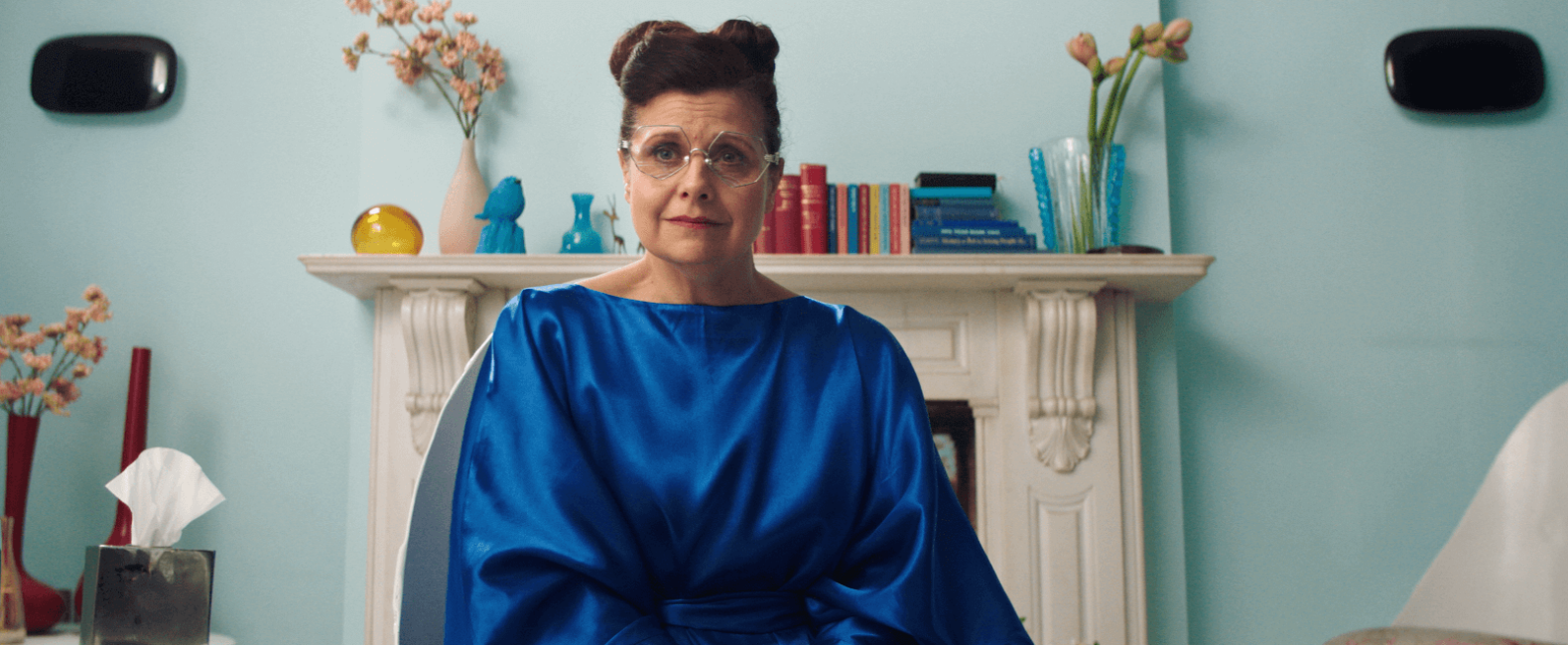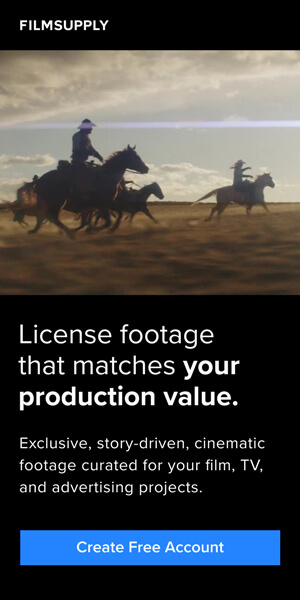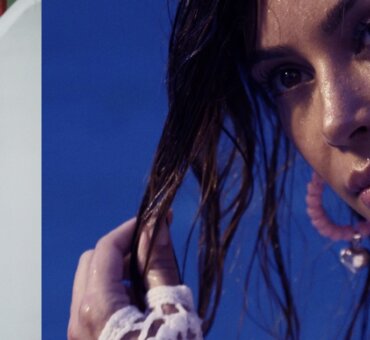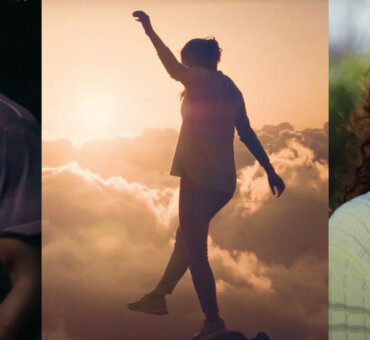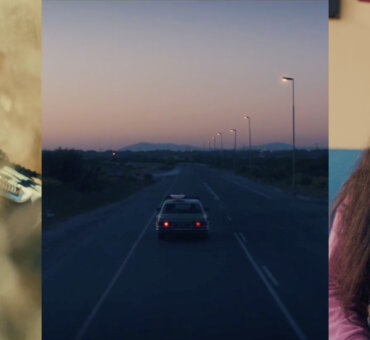Josh Hillman is the perfect person to tell you about negotiating with real estate agents. Or, how to keep chocolate at a constant 15 degrees celsius. Or how to keep cameras from scratching the floor. In other words, he’s a producer—a very good one at that.
He’s currently the senior producer at TCO London, a studio behind visionary work for Levi’s, Facebook, and our personal favorite: Nike’s Nothing Beats a Londoner. But, before Josh headed up TCO’s production team, he was cutting his teeth at none other than Mother London, starting as a freelance PA he then became their Studio Manager and eventually made his way to Producer. And he got there by following his personal rule:
“You know that one thing you think will be fine? It won’t be fine, check that one thing!” Josh told us.
That’s the mindset of a great producer, and we wanted to explore it via his mind-blowing work on TED’s AI Therapy. This hilarious short film packs a lot of social commentary into just a few minutes, and we caught up with Josh to talk about how he pulled the strings to make it happen.
Here’s producer Josh Hillman on the logistics behind AI Therapy and how it influenced his career up to this point.
Filmsupply: How did you get your start in producing?
Josh Hillman: I got as much running work and PA work as I could with the likes of Brave back in the day and then Knucklehead, and just loved it. I loved all the different aspects—assisting, running, and shooting a bit on the side. I got my first job at Mother about six years ago, after having worked freelance with them.
I was contracting with them on a production as a PA and they said, “Do you want to come and interview for this role?” I didn’t know what the role was [laughs]. They said it was a Production Studio Assistant position, but I didn’t have any concept of what that required. If you’ve never worked at a big ad agency, it could be anything. I said yes, got the job, then asked, “Okay, so what is it you want me to do?”
The job description of a producer seems a bit hard to nail down.
Exactly. There’s no rule of exactly what it entails so you just keep going. You have to be super motivated, organized, and make sure each stakeholder at all sides (director, client, creatives etc…) they’re all stoked with the work. But, you also have to make it your own. Mother was amazing, and they just have so much work happening all the time so you learn fast.
And that’s when AI Therapy came on your radar?
TED had their annual conference with all their talks. But, to break up some of it, they wanted to showcase original films. They decided to have a theme, and brief it out. They released the theme and a budget for the winning scripts, so it was almost like a short film competition.
There’s a talented copywriter at Mother, James Ross Edwards. He replied with this great narrative that compared spoiled brats to spoiled AI brats, which is where the concept for AI Therapy came from. I don’t know if he was looking around at his peers for inspiration [laughs], but he came out with this great script, and TED chose it.
The whole crew just seemed like a natural fit. It was directed by Chris Vernon and Emerald Fennell who’ve moved to LA now. (And Emerald’s just released her first feature this year!) I told them I’d love to produce it and it worked pretty well actually. But, as more of a passion project, it couldn’t take front and center. It was quite difficult to fit it in and I think we shot on a weekend.
How did you navigate that as a producer?
You’ve got to work with a great 1st AD. We had several head of department meetings where you get everyone on a call to just talk to each other. It sounds really basic and obvious, but so many times on productions the wardrobe department has never talked to lighting. You realize the talent can’t be under that light or they’ll melt [laughs].
If the camera crew hasn’t talked to location, they don’t know they can’t use the equipment they bought because it would scratch the floors. It’s really simple things like that. Those meetings only take up half an hour, but if you wait until shoot day, you have to come up with a solution there and then and it wastes time.
For example, one of our challenges was the location. I spent a couple of days with Emerald and Chris going around to loads of crazy designed houses. We settled on this flat owned by an artist and she made everything bespoke herself. Literally everything was made by her. It was beautiful. It cost a fraction of the price of building a set, but it also came with the caveat of “you definitely can’t break anything because there’s no way you could ever replace it.” We were allowed 16 people in the house at any one time but we were a crew of 25 so we had a 1 in 1 out rule on the door… it was hilarious.
There was a house for sale on the other side of the road, so we made a deal with Foxtons, which is an Estate Agency. We got the keys for this house to stage like 25 cast and crew. That was like our unit base.
There seems to be a few lessons in there.
Something I always say to anyone on our team is, “You know that one thing you think will be fine? It won’t be fine. That thing is going to be the problem, even if you think it’s trivial.” You’re going through your production to-do list and you see that someone will be there 7 a.m. to open up the location. Then you think, Wait, is that normal for them? Are they going to be there? Who’s the person? Can we get their mobile number?
You just can’t assume. Yeah. Don’t assume. You need to think about that one thing you think will be fine. Because that’ll be your problem. That one’s going to be it.
How do you even put a mindset like that into a job description?
You can’t. You just have to find a solution, and my solution will be different from the next person’s solution. But, that person’s solution will work just as well. That’s the exciting thing when you start working with other producers because you’re never sure what you’re going to find, and how you’re going to overcome a problem. I guess that’s the job.
I feel like production is one of those careers where you get exposed to all these like really amazing characters and experiences all in one go. I’ve had some of the funniest problems pop up. I’ve had melting chocolate that I need to keep it solid for a food shoot. The food stylist is saying, “The chocolate eggs have to be at 15 degrees or they’ll melt. But, they need to explode when they’re tapped so you can’t put them in a fridge because they’ll condensate and look terrible.” [laughs] Those kinds of things are just great. You meet amazing people and you have these funny problems. That’s the gig.
What did AI Therapy teach you about producing?
I think it gave me a bit more confidence. We worked with really well-known talent, Hugh Skinner and Rebecca Front. They’re both high profiles and I was a bit terrified we’d approached them because it was a small project. They just said, “You know, it’s only one day and we like the idea.” They were up for it, which is amazing.
They were higher profile than I normally work with, and they were both super nice, and easy to get on with. It taught me that you don’t need to be quite so standoffish. If you think they’d be great for the part, approach them because you never know what somebody might agree to. It’s applicable for producing in general. Ask for things. Be honest. The worst people can say is, “No.”
Do you think the concept helped convince them?
That’s one reason I like doing jobs that are less traditional, and more like passion projects. I think you’d be surprised how kind and up for doing something people are in a project like AI Therapy. You meet people who everyone wants to work with because it’s all of our decision. It’s not coming from anywhere else. It’s coming from within our team and with great direction.
It’s just so important to do these other jobs if you get the opportunity to do them. They’re where you learn way more craft in a tiny amount of time. We were shooting with a tiny budget, and I felt like I learned a lot more from that than a lot of other jobs I’ve been on, and met some great people I can look forward to working with again. Josh isn’t the only producer to tackle obstacles that come with great creative ideas. Read our interview with VMLY&R’s CCO Noel Cottrell about his own career-defining moment.
